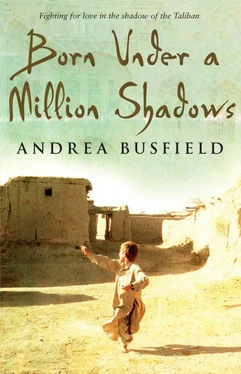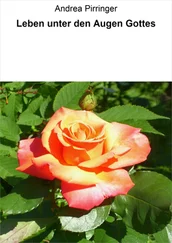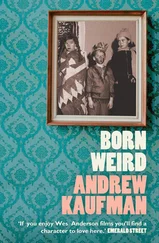I tried to laugh with the rest of the crowd, but to be honest, I was annoyed.
I lifted my bike off the road and checked it for damage. There was a slight scratch on the main frame that angered my eyes, but I guessed it was a small price to pay to stop Jamilla from getting beaten up by gypsies. And when I raced into Chicken Street twenty minutes later, the smile that appeared on her face when I told her the news was worth a dozen scratches.
“You’re joking me!” she screamed as I grandly revealed I’d found her a job at Pir Hederi’s shop.
“No, it’s true. The money’s not great, not like the riches here, but at least in Wazir you’ll be away from the gypsies.”
“You’re my hero, Fawad!”
Jamilla flung her arms around me and planted a kiss on my cheek, which I thought was kind of wrong, but not too bad. Saying that, at some point in the future I knew I would have to make it clear that we weren’t now engaged or anything.
You have to be careful with girls.
With Jamilla on the seat of my bike, we hurried toward Old Makroyan to pick up Spandi. Georgie had ordered me to bring my friends back to the house for Christmas lunch, and I wanted them to arrive before the foreigners got too drunk. When I’d left they were finishing off a second bottle of champagne, and there was another one waiting in the fridge.
After fifteen minutes of hard pedaling, through Shahr-e Naw, over the Jalalabad roundabout, across the bridge spanning Kabul’s muddy river, and narrowly avoiding death a million times under the wheels of yellow Corolla taxis, we bumped our way into the broken lanes separating a dozen blocks of battered flats. The air was thick with chatter, and from most of the trees that were still standing after escaping another winter as firewood hung a mess of old ropes tied to balconies that paraded wet blankets, salwar kameez, bright-colored T-shirts, and dresses grown stiff in the cold.
Coming to a halt at the entrance of Block 4, we found Spandi huddled in the doorway, apparently closing some sort of deal with a boy a little younger than him. When he saw us, he patted the boy’s shoulder and came to greet us with a shy shrug.
“He’s working for me,” he explained, jerking his head in the direction of the boy. “I give him a handful of phone cards, and he gets to keep fifty cents for every one he sells.”
“Ooh, look at the big businessman!” Jamilla laughed.
“You’ve got to start somewhere.” Spandi smiled. “For every card he sells I get half a dollar and the rest goes to Haji Khan. This means that I not only make money from my own cards but also from those I don’t even sell. And I can get rid of more too. Honestly, you wouldn’t believe it; these things sell like hot bolani . I made fifty dollars last week.”
“How do you know the boy won’t run off with the cards and keep the money for himself?” I asked, impressed but ever suspicious—as any right-thinking Afghan would be.
“He’s my aunt’s son,” Spandi explained. “And besides, I told him Haji Khan would rip his head off if he turned us over.”
By the time we arrived back at the house—me and Jamilla wheeling up to the gate on our horse of steel as Spandi ran beside us, a feat that was pretty impressive given how much spand he’d breathed in during his life—I realized we had visitors. This wasn’t some kind of psychic revelation or anything; the three armored Land Cruisers and the posse of guards cluttering our street gave it away.
Kicking our shoes off, we pushed through the front door to find it embarrassingly obvious that not only was the house now in chaos but most of its occupants were out of control; James, Ismerai, and Haji Khan were lost in a cloud of hashish, shouting jokes about Kandaharis and donkeys over the noise of the stereo belting out the same songs I’d heard that morning; and May and Georgie were drunk in the kitchen, giggling uncontrollably as my mother carved into the giant chicken, looking increasingly distressed. Whereas a few hours ago the bird had been a raw slab of white pitted flesh, it was now burned black on the outside and colored pink in the middle. According to the women, this was not a good sign.
“It probably needs another hour,” May suggested.
“It doesn’t need another hour; it needs a bloody funeral!” Georgie replied.
Turning her head in our direction, she welcomed Spandi and Jamilla to the house and wished them a happy Christmas.
“Fawad, I’m so sorry,” she added, turning her attention to me. “I really wanted to give your mother the day off, but it’s quite clear that cooking isn’t my thing.”
My mother laughed—a good, honest, deep chuckle the likes of which I’d never heard before. “I’m fairly sure Haji Khan isn’t that interested in your cooking skills,” she stated.
“Mother!” I shouted, mortified by what she was so obviously suggesting, and in front of my friends too. If I didn’t know any better, I’d have thought she was drunk.
Not that anyone else seemed to share my concern. Everyone was laughing at her joke, even May, whose Dari was passable and whose sense of humor had obviously been helped by the growing number of empty champagne bottles and beer cans cluttering the house.
“Oh well,” Georgie exclaimed, sticking a large knife into the breast of the two-tone bird. “There’s nothing to be done. Khalid! You need to make a trip to Afghan Fried Chicken!”
A few days before Christmas, Georgie had looked wretched—pale and unhappy and constantly attached to a mobile phone that never rang. Now her skin was glowing, her eyes were bright, and a smile that was almost stupid was stuck to her face.
Throughout the afternoon and deep into the evening, Haji Khan was more often than not glued to her side, being funny and affectionate, and though I welcomed his return along with everyone else, I was amazed to see how just a few minutes’ tenderness was enough to make up for weeks of disinterest. It seemed a pretty good deal if you were the man in the relationship. Still, I’d been told that this was the way of love, that it was all-forgiving. And I guessed it must be true. You only have to look at our beloved Afghanistan, the country that’s brought us nothing but death and misery, yet we cry over her beauty and spin songs around her cruelty like lovesick teenagers. We forgive her anything, and I guess for Georgie, Haji Khan was her Afghanistan.
Of course, love isn’t a disease suffered only by women; one look at Shir Ahmad told you that. He had been invited into the house along with our other guard, Abdul, to share food and drinks while Haji Khan’s men turned the house into a fortress. Shir was sitting diagonally across from my mother, and I could see it was difficult for him not to allow his eyes to keep wandering in her direction. For my mother’s part, she was coldly separate, hardly noticing his presence in the room beyond the first greeting. Even so, I noticed she was sitting with her back a little straighter than usual and she had stopped laughing with the other women. And when Ismerai and Haji Khan began reciting poetry, her cheeks colored a little.
Our love of poetry is one of the craziest things about Afghans. Men will shoot someone in the head without a second thought, families will sell their daughters into marriage for a bucket of sand, and everyone will shit on the dead body of their enemy given half the chance; but at the sound of a well-written verse an Afghan man will become weak as a woman. When a poem ends he shakes his head and sits still for at least five minutes, staring far away, deep into the floor, as if seeing his own heart ripped open by the words, baring its shame and pain to the world.
One of the most famous Pashtun poets was Rahman Baba, otherwise known as the Nightingale of Afghanistan. He is as famous and respected as ever an Afghan was, and though he’s been dead for more than three hundred years, people still remember him and hold ceremonies in his honor, and every school has at least one of his poems stuck to a wall. Legend says that he used to scratch his poems in the mud of the Bara River, which must have helped people love him more because he was poor like us.
Читать дальше












